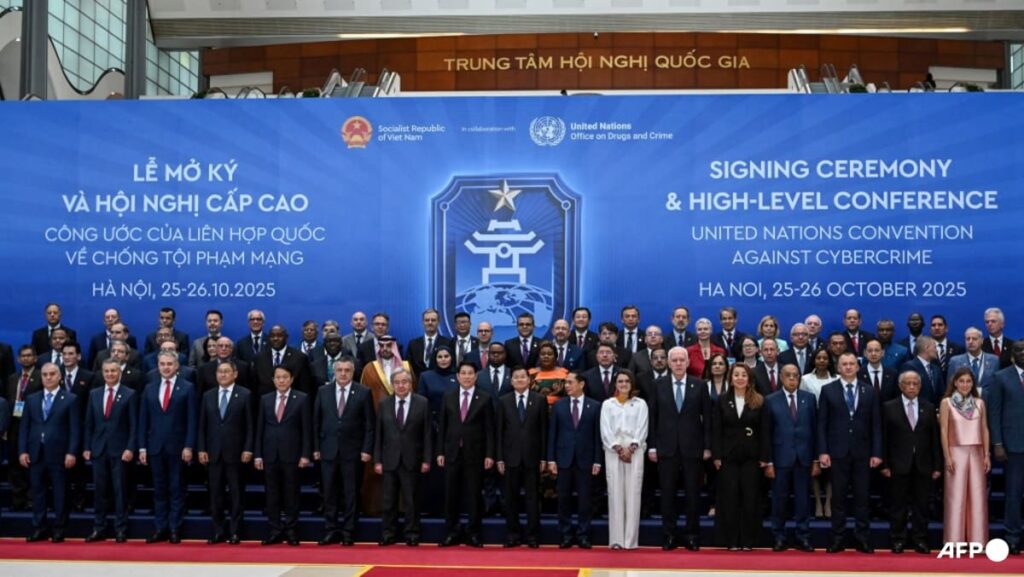TECH SECTOR
Big technology companies have also raised concerns.
The Cybersecurity Tech Accord delegation to the treaty talks, representing more than 160 firms including Meta, Dell and India’s Infosys, will not be present in Hanoi, its head Nick Ashton-Hart said.
Among other objections, those companies previously warned that the convention could criminalise cybersecurity researchers and „allows states to cooperate on almost any criminal act they choose“.
Potential overreach by authorities poses „serious risks to corporate IT systems relied upon by billions of people every day“, they said during the negotiation process.
In contrast, an existing international accord, the Budapest Convention on Cybercrime, includes guidance on using it in a „rights-respecting“ way, Ashton-Hart said.
The location for the signing has also raised eyebrows, given Vietnam’s record of crackdowns on dissent.
„Vietnamese authorities typically use laws to censor and silence any online expression of views critical of the country’s political leadership,“ said Deborah Brown of Human Rights Watch.
„Russia has been a driving force behind this treaty and will certainly be pleased once it’s signed,“ she told AFP.
„But a significant amount of cybercrime globally comes from Russia, and it has never needed a treaty to tackle cybercrime from within its borders,“ Brown added.
„This treaty can’t make up Russia’s lack of political will in that regard.“




